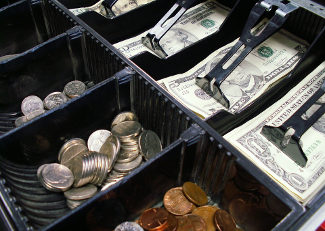Things Are Looking Bleak for European Markets
Late last month the European Securities Markets Authority (ESMA), the securities watchdog for the European Union, released their semi-annual report. Given the political and economic turmoil that the EU has been going through lately, the results are hardly surprising. According to ESMA, the outlook for European markets is getting worse. So what does this mean for us in America? Let’s take a closer look.
Perception of Brexit Influences the European Economy
One of the major factors that’s affecting the markets in Europe is Brexit. You probably know that the UK’s referendum back in June, in which the British people voted to leave the EU, has had a profoundly negative impact on both the British and European economies. Risks are growing, both politically and in the markets. The pound and the euro have fallen significantly in value in the aftermath. European equity indexes are dropping by as much as 12% in a single day.
This is even more alarming when you realize the referendum hasn’t even gone into effect yet. Who knows how bad things will get when the United Kingdom does officially sever its ties with the European Union? The EU securities watchdog warns that things will likely continue in this manner for the foreseeable future, as the full implications of Brexit become clear.
Over the next few months, negotiations for Brexit will take place, and we’ll get a better picture of just what it will mean for the markets, with the full impact expected to last years as businesses struggle to adjust. During that time, ESMA warns that any unsettling news or announcements about the British exodus could contribute to market volatility as uncertainty grows.
The Ongoing Decline of European Markets
It’s vital to understand too that the poor state of the European markets didn’t begin with Brexit. The EU has been experiencing reduced growth in many of its member countries, due to a variety of factors, including high debt and unemployment rates. The June referendum only exacerbated things.
Back in May, before the vote took place, the European Commission had already revised its forecast of growth for the year to reflect the impact of these ongoing problems. In February, they projected an expansion of around 2%, the same as 2015. But their revised prediction cut that figure down to 1.9%. That might not seem like much of a difference, but it’s a sign that things are worse than expected—and Brexit stands to aggravate an already dismal economic climate.
So what does this mean for you? As Americans, do we still have to worry about the volatility of the European markets? Unfortunately, yes. As the world economy experiences problems, confidence in the U.S. market tends to go down as well. And the many American companies that do business overseas will also see reduced growth as a result. Add to that the fact that our economy has been experiencing its own instability, separate from Europe and Brexit, which will likely only get worse as a result of these recent events. The forecast is clear: no matter where you are in the world, things are getting worse economically, and they will likely continue to do so for the foreseeable future.
In such a situation as this, it’s important to protect your own investments from financial catastrophe. The markets are unstable. Bonds are losing money. You may think that cash is the way to go, since the weakening of other currencies has made the dollar stronger than ever. But that strength can’t last forever, and inflation makes it a poor choice for a long term investment. You need to find something physical to invest in, with intrinsic value, which will maintain its buying power over time, even in the face of volatile markets and economic turmoil. This is the only way to keep your investments safe and protect your nest egg for the future, no matter what happens on the world stage.

